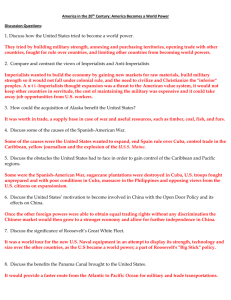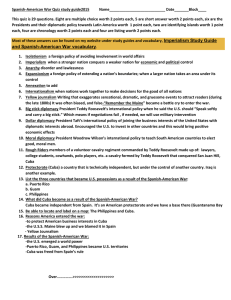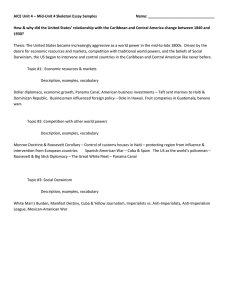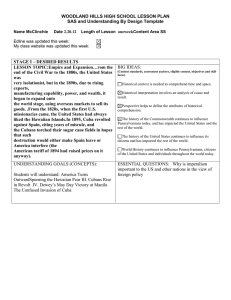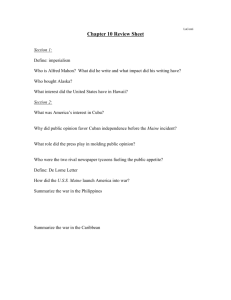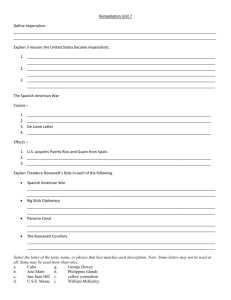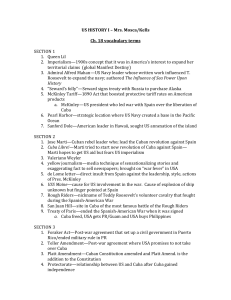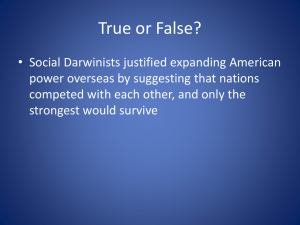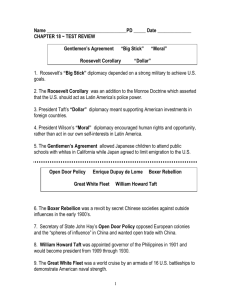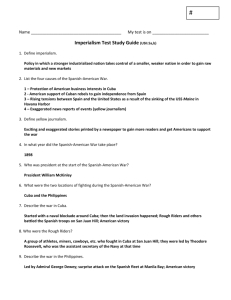Chapter 11 Test prep
advertisement
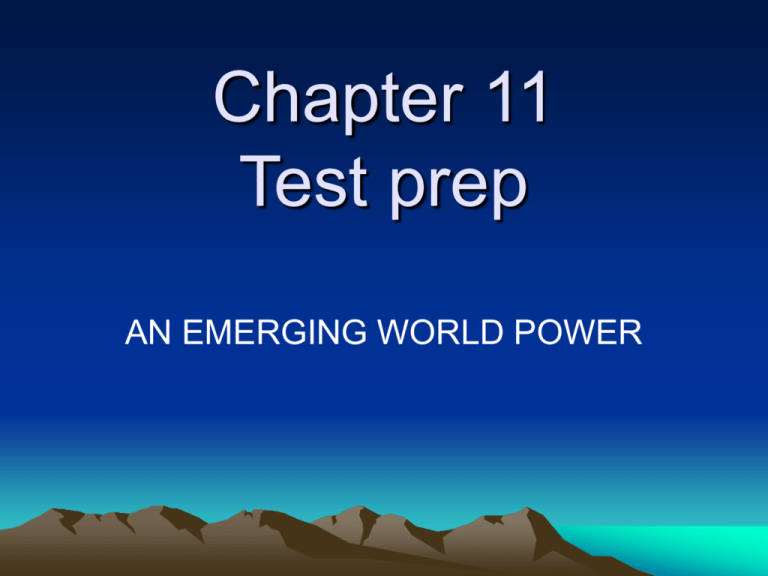
Chapter 11 Test prep AN EMERGING WORLD POWER Roots of Imperialism • US became an imperialist nation in the beginning of the 20th century • Economy based on taking raw materials is called an EXTRACTIVE ECONOMY • “Seward’s Folly” made people wander why the US would want a frozen wasteland in Alaska. Roots of Imperialism • Alfred T. Mahan- military officer and writer who emphasized need for strong Navy • Fredrick J. Turner- historian who said frontier helped make America great. • Wealthy US planter in Hawaii- Sanford Dole • Queen Liliuokalani- last monarch of Hawaii • White Man’s Burden- duty of white society to spread its culture to inferior races Why did United States Navy Commodore George Dewey lead an attack on ships in the Manila Bay during the Spanish-American War? • Manila Bay was ruled by Cuba, and the ships belonged to the Cubans. • The US used the war with Spain as an excuse to take over other territories. • Dewey wanted to attack Spain and gain control over Cuba. • The Philippines joined the war in support of Spain. The Spanish-American War • Teddy Roosevelt led the military unit called the Rough Riders • Emilio Aguinaldo was a Filipino freedom fighter. • Treaty of Paris ended the war and gave to the US: Puerto Rico, the Philippines, and Guam • Taft censored the press in the Philippines The United States and East Asia • Boxer rebellion was a revolt of Chinese nationalist • Great White Fleet- American ships meant to show power of American supremacy • Banana Republics- Central American countries that produced Bananas. • Americas Open Door Policy was to improve trade with China without controlling territory • Roosevelt won Nobel Peace Prize for helping to end the Russo-Japanese War The Teller Amendment stated that • Spain had no right to mistreat the people of Cuba • The United States could not go to war. • The United States could not develop colonies • The United States could not annex Cuba. The United States and Latin America • Roosevelt sent troops to support Panamanians against Colombia to gain rights to build a canal. • Roosevelt’s “Big Stick” diplomacy depended on a strong military • The Platt Amendment prevented Cuba from signing treaties with any other country • The Foraker Act determined the form of government in Puerto Rico • General John J. Pershing chased Mexican Rebel, Francisco “Pancho” Villa The United States and Latin America • Taft used “Dollar Diplomacy” • “Moral Diplomacy” said that US should favor honorable diplomacy • The Roosevelt Corollary was used to assert US police powers in Latin America
